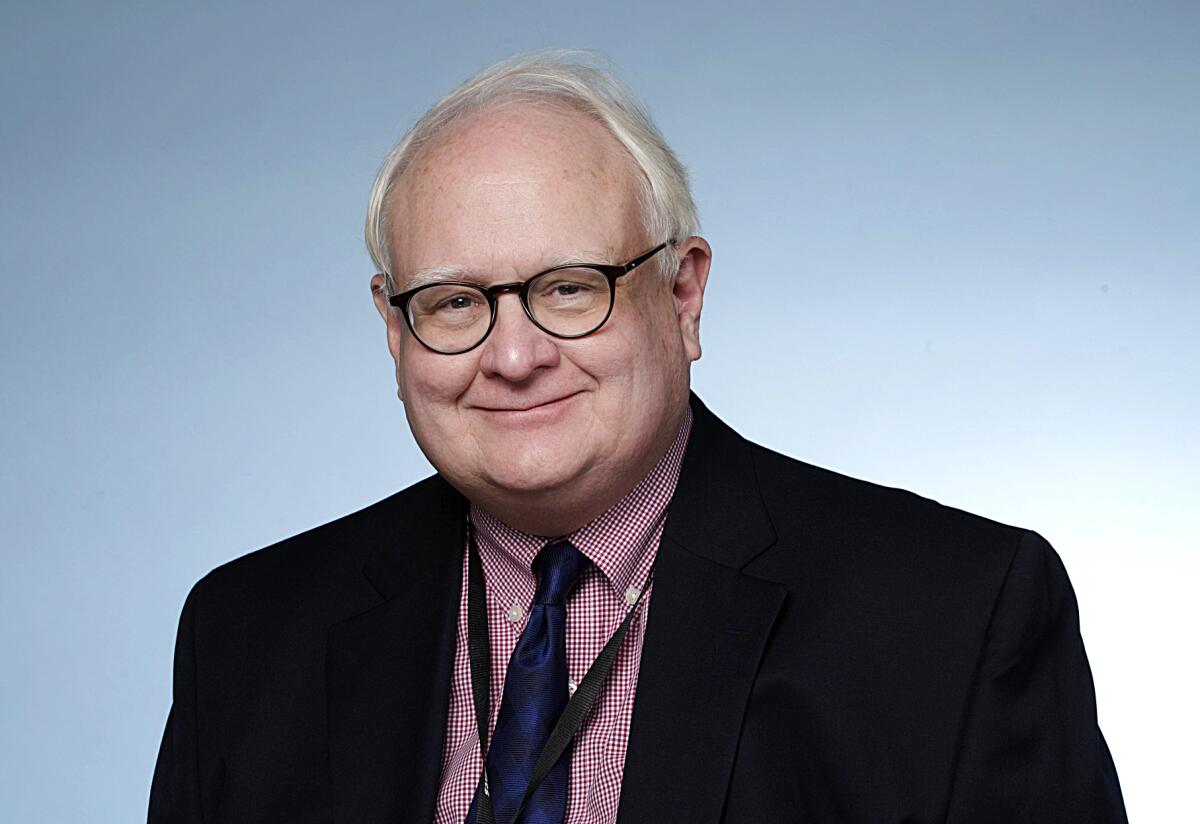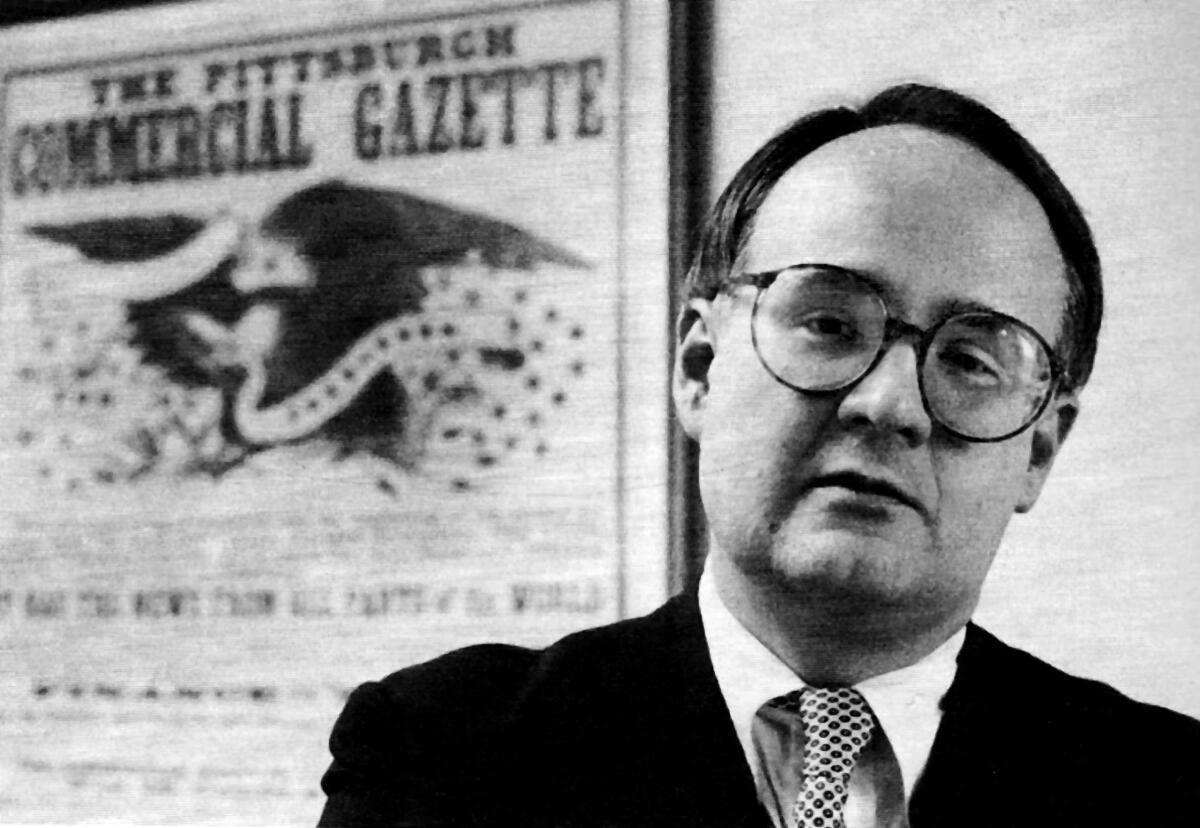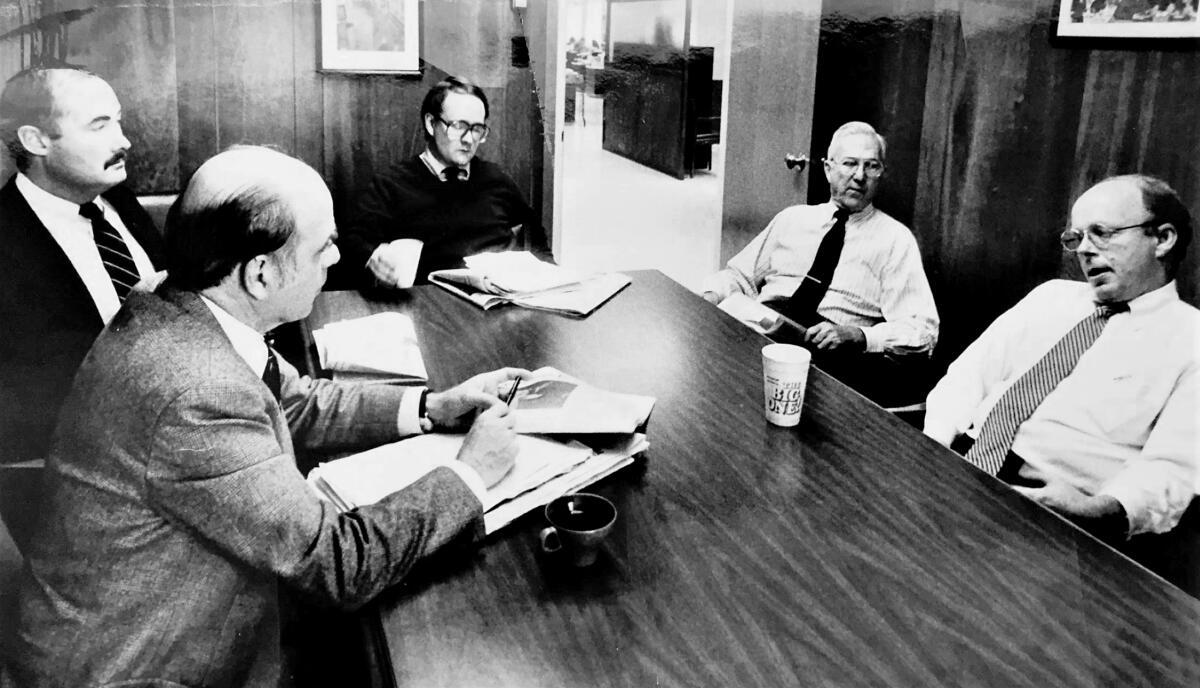Editorial: From one lawless president to another

July 23 was my last day as the Los Angeles Times’ senior editorial writer based in Washington, D.C., where for the last 15 years I wrote about national politics, the Supreme Court, national security and religion. Before that, I spent almost 30 years at my hometown newspaper, the Pittsburgh Post-Gazette, as an editorial writer and editorial page editor, before coming to Washington to cover the Supreme Court for that paper.
I’m as close to being a “lifetime” editorial writer as you can get, having written editorials under 10 presidents, from Nixon to Biden. I have no regrets about my decision to spend most of my career in what some of my reporter colleagues (not always good-naturedly) called the Ivory Tower. I worry, however, about whether the journalistic specialty in which I found so much satisfaction may be losing some of its influence. More about that later.
I began my career in daily journalism, as many journalists do, as a reporter, unless you count my working as a copy boy at the Post-Gazette during high school summer vacation. But shortly after I started covering local news at the PG in the early 1970s, an opening abruptly occurred on the editorial pages.
In those days, the most junior editorial writer at the Post-Gazette also edited signed columns and letters to the editor — with a pencil. It was primarily for that less prestigious work that the suddenly staff-short editorial page desperately needed help, especially when vacation season loomed. I lobbied successfully for that stopgap assignment. Soon I was pruning the prose of syndicated sages such as James Reston and massaging submissions to the Post-Gazette’s letters column, “The People Speak.” (Given the necessity to condense these screeds, a more appropriate title would have been “The People Squeak.”)

I contrived, however, to write as many editorials as I could and eventually I convinced the publisher that I should formally join the editorial board. It was an audacious request (I was in my early 20s) but also an inevitable one. I enjoyed reporting, but I had been attracted to editorial writing since my days on my high school newspaper. My other school activity had been speech and debate, also a proving ground for a budding editorialist.
I was writing editorials regularly in 1974 just as the Watergate scandal was nearing its denouement. The Post-Gazette had endorsed President Nixon in 1972 in an editorial written by the paper’s editor, with an unusual dissenting editorial on the opposite page by editorial board members who preferred Democratic nominee George S. McGovern, who went on to lose Pennsylvania and every other state except Massachusetts. (McGovern also carried the District of Columbia.)
As it became clear that Tricky Dick was stonewalling investigators, the Post-Gazette editorial page turned critical, and the editor was willing to have me write some of the editorials. The opportunity to opine about a constitutional crisis clinched my dedication to the opinion side of journalism.
Writing about the scandal’s subpoenas, grand jury transcripts and invocations of executive privilege attracted me for the first time to the law. That interest led me to a fellowship at Yale Law School, where I came to question some of the glib pronouncements about legal issues in my editorials. (For example, I learned that there was a respectable constitutional argument for Nixon’s refusal to hand over his incriminating Watergate tape recordings.)
More than 40 years later, I found myself writing about another lawless president, one who did not evade impeachment. By comparison with Donald Trump, however, Nixon seems almost benign. Unlike Trump, he brought ability and experience to the presidency, and in the end he accepted the consequences of his wrongdoing by resigning.
I am climbing down from the Ivory Tower at a time of disruption for journalism in general and opinion journalism in particular. The advent of the internet has been good for opinion journalism; so has an overdue commitment by newspapers to use their opinions to amplify previously unheard voices. The times aren’t so propitious, unfortunately, for the institutional, unsigned editorial.
The New York Times, for example, uses the space traditionally filled by editorials to showcase signed columns instead. This is a modified version of a proposal made by the journalist Timothy Noah in a 2005 Slate article titled “Abolish Michael Kinsley!” (Kinsley at the time oversaw the editorial pages of this newspaper.)
In calling for the abolition of editorials except in rare situations such as election endorsements, Noah wrote: “Almost every editorial I’ve ever read in my life has fallen into one of two categories: boring or irresponsible.” He concluded: “The compelling format for expressing opinions is the signed column or op-ed. Long may they rule.”
Noah was continuing a grand tradition of disparagement of the editorial. In 1866, a writer in the North American Review declared that “the prestige of the editorial is gone,” eclipsed in importance by news reporting. In the 1930s, H.L. Mencken dismissed the editorial page as a “vestigial organ.”
At the risk of seeming defensive, I would argue that editorials are not obsolete and that the lack of a byline can be liberating, requiring the author to frame an argument without relying on the crutch of his or her personality or fan base. Nor do unsigned editorials have to be boring or equivocal. My colleague Robert Greene was awarded the Pulitzer Prize this year for a collection of editorials that were passionate and at times poetic — and unsigned.

Those editorials were also the result of discussions on the editorial board, a reality that Greene graciously acknowledged. The claim that editorials are dull and wishy-washy is often linked to the fact that, at least at larger newspapers, they are the result of such group deliberations. The former editor of the Philadelphia Inquirer’s editorial page once complained that insisting on consensus by an editorial board with diverse views produced “gray gelatinous goo.”
An obsession with achieving consensus can indeed result in editorials that espouse a lowest-common-denominator position. But the cut and thrust of editorial board discussions can also produce sharper and more confident arguments, especially when those discussions are informed by regular contact with public officials, activists and readers.
Editorial writers come to the conference table not only with competing views about issues but also with different instincts about what an editorial should be. For some, the ideal editorial is a demand that politicians or other influential actors “do something” (pass this bill, redress that injustice, impeach this president). For others, the more congenial message will be “stop and think” (for example, before passing unconstitutional if popular legislation).
In editorial writing, as in St. Paul’s description of the Christian Church, there are many gifts of the Spirit. A successful editorial board will encourage all of them to flourish.
When I reminisce about my editorial-writing career, my fondest memories won’t be of pounding out eloquent editorials in the isolation of my office or cubicle; rather, I’ll recall the usually enlightening, often entertaining, occasionally exasperating discussions that preceded and shaped the act of writing. I trust that such conversations will continue in my absence — for the ultimate objective of producing editorials that readers find compelling even when they disagree.
For that to remain the case, owners and publishers will have to resist the temptation to respond to economic adversity (or the cult of personality in opinion writing) by shrinking the size of editorial boards and rationing institutional editorials.
I’m not opposed to allowing editorial writers to speak in their own voice — I’m doing that here — and it’s possible that editorials that reflect a consensus view might also credit the writer. What matters is that newspapers continue to put their prestige behind proposals for the common good. That requires a strong and resonant editorial voice.
More to Read
A cure for the common opinion
Get thought-provoking perspectives with our weekly newsletter.
You may occasionally receive promotional content from the Los Angeles Times.











